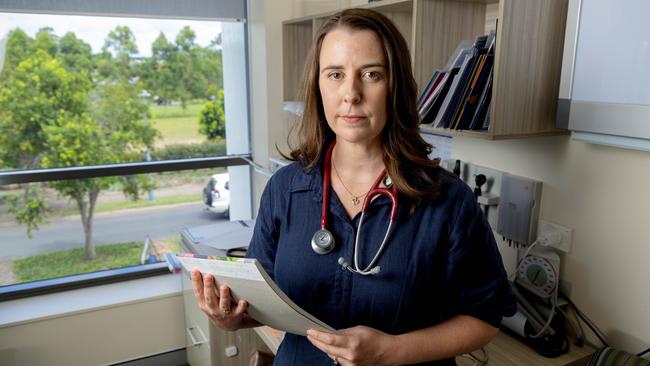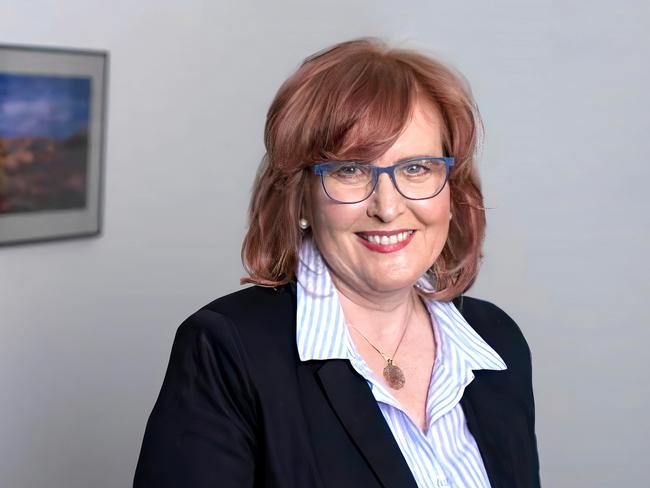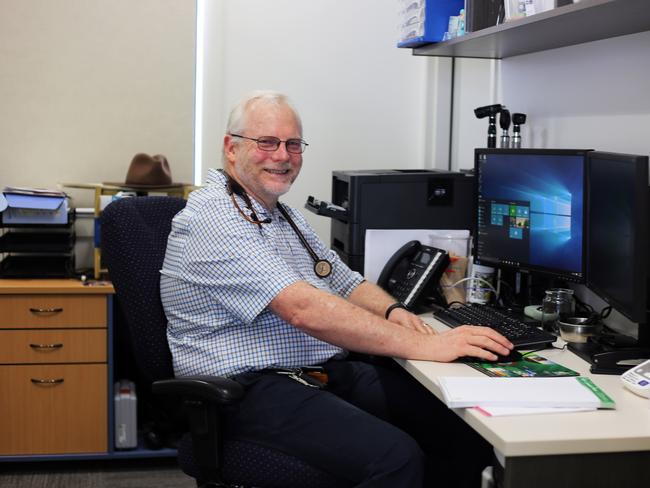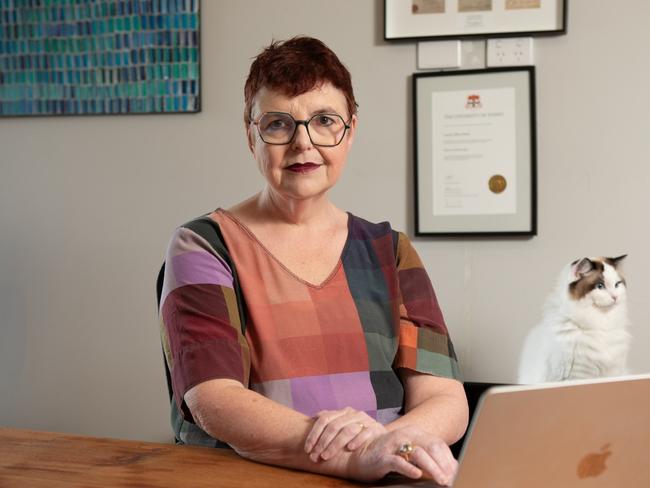What general practice doctors say about Labor’s bulk-billing plan
A range of GPs and medical leaders have questioned how many doctors will take up Labor’s plan to encourage full bulk-billing. We ask seven doctors for their views.

A range of GPs and medical leaders have questioned how many doctors will take up Labor’s plan to encourage full bulk-billing.
Dr Michael Wright, RACGP president

Woollahra Doctors, mixed billing practice in eastern Sydney
“Extending these bulk-billing incentives to everyone doesn’t necessarily mean everyone’s going to get bulk-billed, because patient rebates are still low to cover the cost of care.
“GPs are concerned about the inflexibility of the funding and the type of care it’s going to reward because basically these new bulk-billing payments provide the same incentives to all types of consults, and that incentivises short consults.
“We’ve been arguing for a long time that patients increasingly need more mental health support, and they need more support to manage chronic and complex conditions, and that needs longer consults. Medicare rebates need to rise to properly remunerate longer consults.”
Dr Karen Price

GP at Nepean Health Care in Melbourne, fully private billing
“We’re seeing our profession become fragmented with bits hived off here to pharmacists and hived off there to other people, and there’s just a feeling of being disrespected for the full scope of what a GP does.
“GPs are very dedicated to their patient care. We spend a lot of time going through cases and making sure we keep up to date. With the political announcements, a lot of people can’t invest in it because it’s dispiriting. Everyone’s a bit feeling a bit jaded. This bulk billing incentives policy has just sort of put everyone in a very poor position for the sake of a political vote, because they think it’s a winner, and they’re using health as a political pawn.”
Danielle McMullen, AMA president

MyLife Medical Brookwater General Practice, Queensland, mixed billing
“We had the whole strengthening Medicare Task Force, where many of us invested years of effort into defining the problems and looking at solutions to make sure that patients can get access to their GP, particularly for longer consultations for mental health care and access to a team within general practice, and more nurses or allied health staff.
“And yet this bulk-billing incentives announcement doesn’t do anything for all of those issues.
“It doesn’t give Australians the time they need with their GP and incentivise that at a system level. It encourages GPs to try and see as many people as possible too quickly. We need to get the balance right. We obviously need some access, and we’re all trying to see as many people as we safely can.”
Dr Ewen McPhee

Emerald Medical Clinic, mixed billing practice
Practising in remote Queensland, Doctor Ewen McPhee said in order to adopt universal bulk billing his practice would have to fire half their nurses and receptionist staff in a move back to “six-minute medicine”.
“We bulk bill about 40 per cent of our patients, because we have a large elderly population,” he said.
“The challenge that we’ve had with the other cohorts is that it just doesn’t add up … given that we’re in a rural and remote area and our profit every year is between $20k and $50k only.
“We’ve projected about a half a million dollar loss if we were to go to universal bulk billing, so we’re not in a position to do that.”
“There’s been no consultation with general practice around this, no-one has come and asked if this is a good idea … In a marginal environment like rural general practice this is not a goer, except for the people we already offer bulk billing to.”
“The base price over the last 25 years should have been increasing with CPI and inflation and putting in incentives which can be easily manipulated or withdrawn makes us nervous about accepting this as a reasonable long-term business choice.”
Dr Max Mollenkopf

Whitebridge Medical Centre, mixed billing practice
A GP practising in Newcastle, Dr Mollenkopf said that while all GPs wanted to see patients paying less for their healthcare, “draconian bulk-billing incentive rates” weren’t the answer.
“For us, as a small independent clinic it’s not going to change our bulk-billing rate. We set our fees based on our costs of delivering a service … the business would go under if we bulk-billed at the proposed rate.
“I think Anthony Albanese taking out his Medicare card and saying ‘this is all you need to visit the doctor’ is a little deceptive when for most practices, financially this isn’t going to work.
“We private bill because we want to spend time with patients and provide comprehensive care. “That unfortunately means you can only see three or four patients an hour rather than six or seven.
“A much more effective use of this money would be to increase patient rebates so people can walk home with more money in their pocket.”
Dr Louise Stone

Think Mental Health, mixed billing practice
Working as a lone GP in a psychology practice in Canberra, Dr Stone said the proposed incentives would not fix persistent problems with bulk-billing patients.
“Working in a practice run by psychologists and psychiatrists as the only GP, I’m always seeing patients with complex mental health needs.
“The more complex the consult, the less Medicare pays per minute … the incentives won’t make a difference for the sort of work I do.
“I have to charge a higher gap to these people who are already living with complex needs. “They won’t go to the urgent care clinics. They won’t go to Medicare mental health clinics. “They won’t go to the ED … there is nowhere else for them to go. But they get a quarter of the Medicare rebate per minute to get the healthcare they need, I just think that’s unjust.”
Doctor Kean-Seng Lim

Mt Druitt Medical Centre in western Sydney, bulk bills pensioners, health care card holders and children and has many patients requiring longer consultations.
“Mt Druitt has one of the highest levels of social disadvantage and some of the highest levels of chronic illness … More than 50 per cent have one or more chronic conditions with 25 per cent having two or more chronic conditions. It is unlikely this will lead to us bulk-billing all our patients.
“Firstly, what this measure does is extend the bulk-billing incentive to all consultations. “Unfortunately this is still less than the gap we currently charge and still way less than the AMA recommended rates.
“Secondly, this measure applies the same incentive regardless of time we spend with each patient so it continues to discriminate against more comprehensive care which requires longer consultations.
“Our practice philosophy and ethos is based on providing a quality service. This can be measured in terms of health outcomes and proactive identification of opportunities to improve health. This sort of care requires more work behind the scenes … (and) a dedicated team of different health professionals.
“The bulk-billing incentive does nothing to support the data-driven, proactive approach, nor supports the team to provide this care. What the incentive does is allow more flexibility for bulk-billing where there is a need, but we estimate this will be a few percentage points at most.”



To join the conversation, please log in. Don't have an account? Register
Join the conversation, you are commenting as Logout